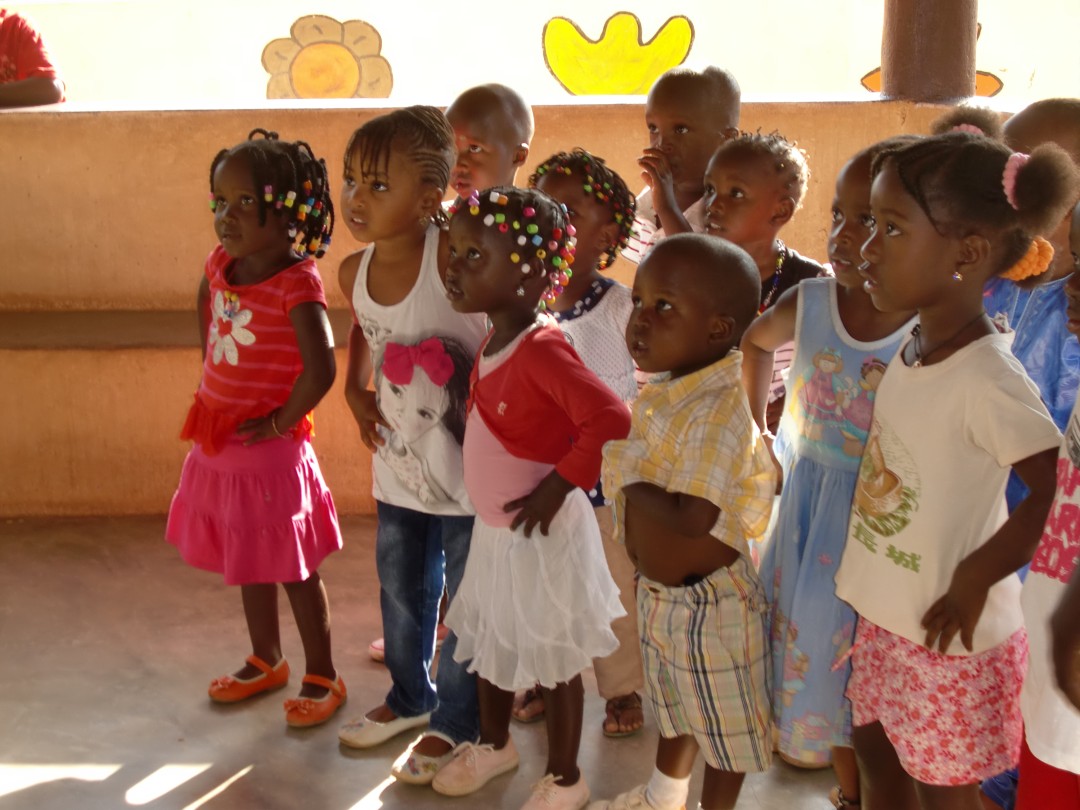Development of two districts
The project aimed to promote access to a number of quality services (education, literacy and professional development) for the most vulnerable members of the population (children, young people and women) in two districts of Bissau. The project, carried out in partnership with a local NGO, Alternag, was to provide access to education for 400 children aged four to six; access to vocational training for 800 young people aged 14 to 18; literacy classes for 610 women; and vocational training and economic integration for young men and women from the two districts.
The project exceeded its targets. 530 children (55% girls) benefited from pre-school activities in both districts; 88% of the children who completed a full cycle were subsequently enrolled in primary school. Six four-month literacy courses were organised and benefited 663 women. The classes had a significant impact on the daily lives of the women, who gained in autonomy and self-esteem. During the third year of the project, twenty men also participated in the literacy courses when mixed classes were put in place. Over 1,390 youths received vocational training. The biggest challenge faced by the project remained the professional integration of the youths. 54% of them were able to find an internship after completing the training. However, 42% of these young people were fully employed at the end of the project.
French association ESSOR was founded in 1992 and aims to help vulnerable populations to sustainably improve their lives. ESSOR conducts a number of projects in six countries: France, Brazil, Cape Verde, Guinea-Bissau, Mozambique and Chad. The association has recognised expertise in the field of childhood, education, training and professional integration.
Type
Education / Health / Community DevelopmentDuration
January 2012 - December 2014Location
Bairro Militar and Missira districts in Bissau / Guinea- BissauWith whom
ESSOR
Website

Guinea- Bissau
Population
1.9 million (2017)
Per Capita Income
USD 660/year ( 2011)
Poverty rate *
69% (2010)
Literacy rate
46% (2016)
Human Development Index
177th out of 189 countries (2018)
Guinea-Bissau has suffered from political instability since its independence in 1974. This has resulted in a lack of development and high levels of poverty, with over two-thirds of the population live under the poverty line. Many women still die during childbirth. Despite progress in reducing its child mortality rate, one in 10 children still die before reaching the age of 5 and 28% of all children under 5 are moderately to severely malnourished. The HIV/AIDS pandemic, malaria and TB continue to advance, resulting in a particularly low life expectancy. Education for all is progressing slowly although the quality of education remains poor and is compounded by a severe shortage of teachers and resources.
Sources: World Food Program, UNICEF, World Bank, 2016 Human Development Report, Human Development Indices and Indicators (2018 Statistical Update)
*The percentage of the population living below the national poverty line.